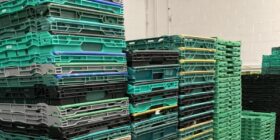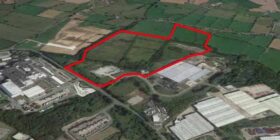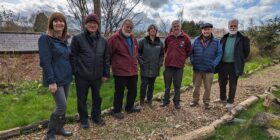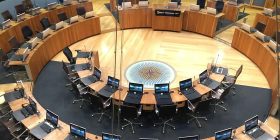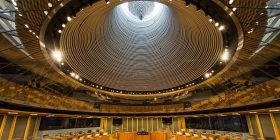Wrexham University proposes net zero solutions through local collaboration
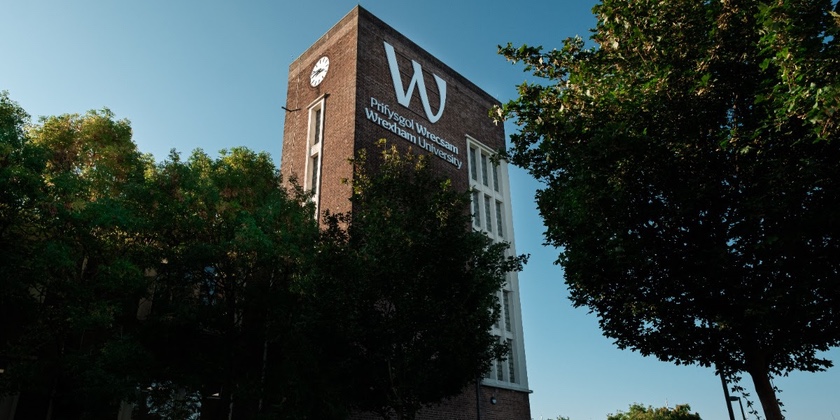
Wrexham University is one of six universities to propose new ideas for meeting net zero targets through local and industry collaboration.
The institution’s proactive approach to empowering communities and local industry to drive the net zero transition is one of six innovations proposed by the Key Cities Innovation Network (KCIN) in “Civic Partners in Net Zero” – a collection of peer-reviewed studies.
Co-edited by Wrexham University Vice-Chancellor Professor Maria Hinfelaar, the studies detail innovative ways in which universities are working with their local communities to achieve net zero targets.
KCIN coordinates universities associated with the cross-party group of 27 Key Cities across England and Wales – including Wrexham – which is the largest grouping of urban authorities in the UK outside London.
The studies, selected not only for local relevance but also their potential for replicating in other places, range from tech innovation and policy development to engaging local communities with climate science.
The two case studies described in the Wrexham paper emphasise its approach to community and business engagement through decarbonisation research, industry collaboration, climate change education, and a strategic Low Carbon Transition and Delivery Plan.
The first Wrexham case study, ‘Ecological Citizens’, cultivates and actively promotes ecological citizenship through technologically apt interventions, with a focus on empowering individuals and communities to take positive climate action.
The second, ‘Large Housing Estates of the Future’, explores Wrexham University’s collaboration with social housing developers to implement sustainable outcomes through best-practice solutions such as integrating smart grids, various renewable energy sources and energy storage systems.
The other innovations featured in “Civic Partners in Net Zero” are:
Dynacov: pioneering new technology to enable recharging of electric vehicles (notably heavy goods and public service vehicles which will still be required in car-free cities) by dynamic recharging while driving on power-enabled public roads. (Coventry University and Coventry City Council)
The Morecambe Bay Curriculum: researchers working with educators in local schools and colleges to weave sustainability and place into everyday teaching across all phases of education, in a collaboration inspired by the development of Eden Project Morecambe. (Lancaster University with Lancaster and Morecambe College, University of Cumbria and the Eden Project)
Connecting policy and science for net zero carbon construction: trialling local planning policies to achieve low carbon outcomes that go far beyond national building regulations. (University of Bath and Bath & North East Somerset Council)
The promise of biotech: supporting a circular economy by deploying new technologies to recover waste and produce clean energy and fertilisers. (University of South Wales)
Stories in the Dust: researchers and a theatre company combine to engage primary school audiences emotionally with climate science. (University of Southampton and Stories in the Dust Theatre Company)
Cllr Mark Pritchard, Leader of Wrexham County Borough Council, said: “It is important to have cross-sector collaboration as well as local empowerment to help shape strategic decisions, ensuring that councils are focusing on issues that really matter.
“We welcome the report as well as the featured case studies from Wrexham University that demonstrate the best practices of proactive approaches to empower communities and local industry to drive the net zero transition.”
Professor Maria Hinfelaar, Vice-Chancellor of Wrexham University and co-editor of the Civic Partners in Net Zero report, added: “One of the defining opportunities for the Key Cities Innovation Network is to develop and apply ideas that can scale not only to large cities but to all kinds of urban areas – and their associated rural and coastal places – as represented by the diversity of the Key Cities.
“When it comes to climate change, universities have a critical role to play in brokering partnerships with their local authorities, community organisations and local people to create a more environmentally sustainable society.
“While each study in this collection represents a specific locality with its own characteristics and actors, there is scope for replicating the ideas and practices elsewhere and so add value to our collective efforts to reduce carbon emissions locally, nationally and globally.”
Spotted something? Got a story? Email [email protected]
